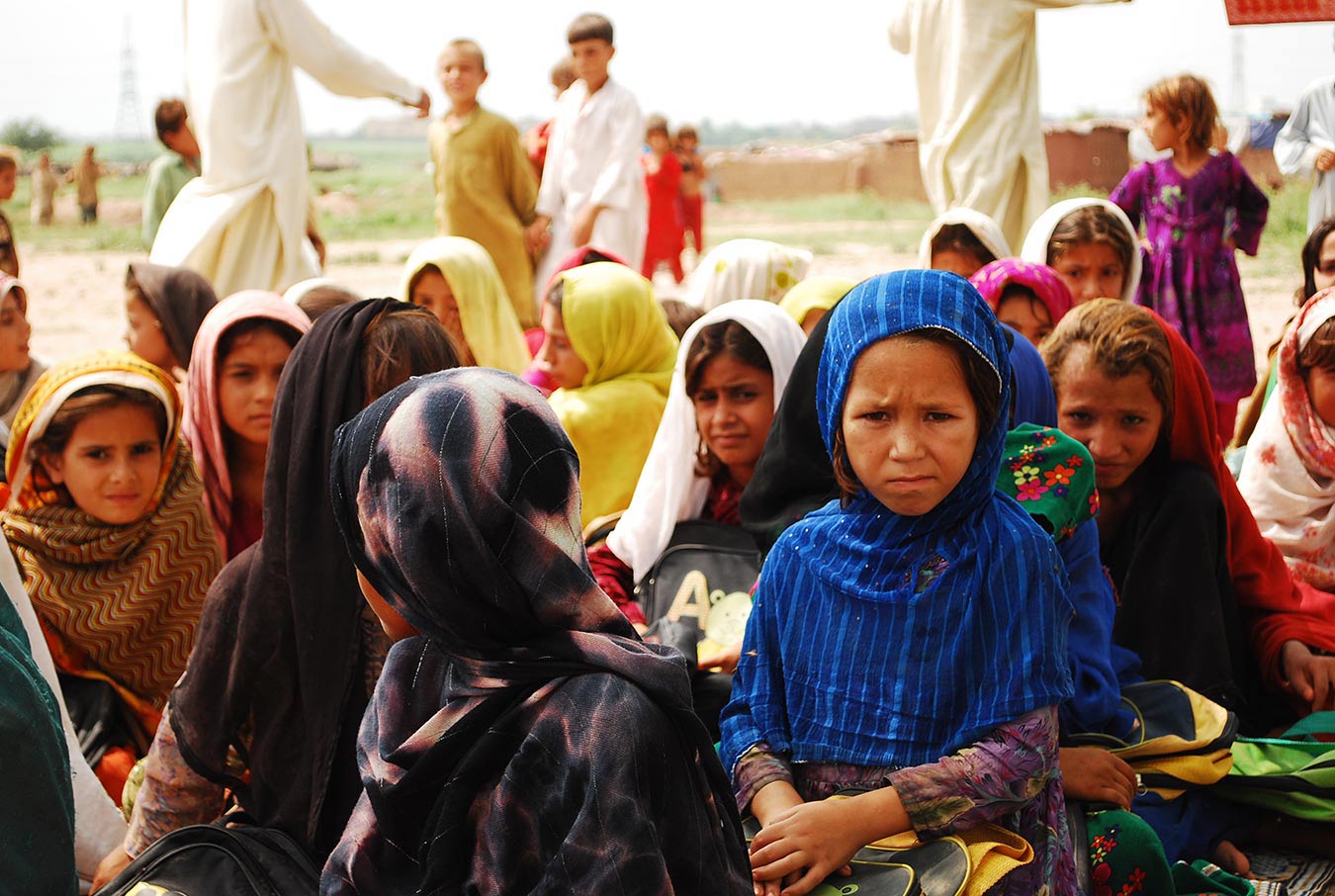Parchee has always been someone that people can talk to.
An Afghan refugee who has lived in Pakistan for over 40 years, Parchee has been a pillar for Afghan women in her local community in Tehkal Bala for a long time. Tehkal Bala is a village in the Peshawar region of Pakistan. It has a large, close-knit community of Afghan families. Unfortunately, these families are some of the poorest in the village.
To support these Afghan families, Relief International established the Afghan Community Forum where local elders, parents, women and youths come together to find solutions to ongoing problems, take part in training sessions focused on health and hygiene, and provide moral support to one another.
The goal is that the people attending these forums can pass on the information they have learned to immediate and extended family members creating a cascade of learning and support in the community. The forums are purposely constructed to include and engage Afghan women and girls.
Parchee is one of the leaders for the Afghan Community Forum in Tekhal Bala. She focuses on providing support and advice to Afghan women in the community because they often face the most barriers to accessing information and assistance.
“Women approach me with a variety of issues,” says Parchee.“A woman whose husband is visually impaired came to me [to discuss his treatment]. Another woman came to me whose husband is disabled because they need help too.”
She provided moral support, guidance on how to proceed, and information on where these women could get financial or medical support in the area.

Parchee speaking with women in her community
In her role as a leader in the community, Parchee has also been instrumental in helping enroll local children into formal education. “I was excited to get our kids enrolled in RI School Readiness Program Centers,” states Parchee.
Approximately 40% of registered Afghan refugees in Pakistan are school-aged children (5-17 years). Of these, only 20% are enrolled in public/UNHCR/private schools. Around 80% are out of school (OOS).
“These children used to pick and sell garbage items and do labor work to support their families.” With the help of the local forum and Relief International, now the children go to school every day.
“I have helped enroll over 40 kids in school,” says Parchee.
Unfortunately, life has been extremely difficult over the last two years in Tekhal Bala.
“Because of the COVID-19 pandemic, Afghan families, along with numerous others, lost their livelihoods and their savings to feed their families…. The pandemic left us destitute, and we were stuck in our home during the lockdown. We are all Afghans here and we don’t get jobs easily, so we rely on self-employed jobs or work in private set-ups like shops, restaurants etc.”
When COVID-19 hit Tekhal Bala, Parchee continued to support the women in her community as much as she could.
While there was little Parchee could do to help her community financially, she worked tirelessly to provide health and hygiene sessions specifically on COVID-19 prevention.
She took part in RI training sessions to learn more about COVID-19, how to prevent it through good hygiene practices, and how to treat it if someone was infected.
“It’s my responsibility to carry forward this information to other people in the community” says Parchee. “I followed all the protocols for COVID-19 prevention and kept reminding the community to do the same.”

Parchee engaging with local children.
There are 70 Afghan Community Forums (ACFs) in the Swabi, Peshawar and Nowshera districts of Pakistan in total. Through these forums, RI has helped over 5000 afghan children go to school and trained 7000 Afghan men and women on health and hygiene related topics.
“I thank my God that everyone talks to me about their problems, and approach me whenever they feel they are in pain or trouble” says Parchee.
“God gave me respect in my community so I can give them moral support and solutions to help resolve their issues.”

Relief International in Pakistan
Pakistan hosts more than 1.4 million Afghans who have been forced to flee their homes. Relief International is working to improve outcomes for these people by providing health, nutrition and educational programming in the communities they live in.
